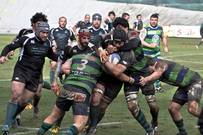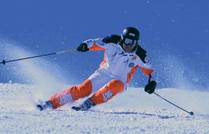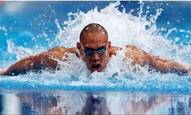First Cycle Degree Course in Sport and Exercise Science (L22)
FIRST CYCLE DEGREE COURSE – 3 YEARS – CLASS L22
Degree Programme Director:
Prof.ssa Simona delle Monache
Academic Didactic Council Director:
Prof.ssa M. Giulia Vinciguerra
Educational objectives of the course
The degree programme in Sport and Exercise Science aims to provide students with scientific and technical/operational knowledge and skills for the conduct of motor and sport activities, both individual and group, of an educational, adapted and sporting nature. This knowledge and skills are aimed at the promotion and maintenance of the psycho-physical well-being of the individual, in accordance with the general principles of the O.M.S., within the framework of a programme of motor activity appropriate to their needs. In recent years, motor activity has become a practice based on solid and proven scientific foundations. For this reason, the Sport and Exercise Science degree course has as its main educational objective the development of knowledge and skills in the motor-sport, biological-structural and psycho-pedagogical fields related to physical activity. This, together with moments of practice in motor and sporting disciplines, will allow the acquisition of skills aimed at various professional opportunities in the world of motor activity. The course also aims to provide students with the knowledge and skills necessary to continue their studies in the three Master's degrees in Exercise Science, where they will complete their personal and professional training. Biological and structural characteristics of the human body as expressed in movement, and adaptation processes related to exercise, also in relation to the subject's age and sex.
- the scientific and methodological tools necessary for the delivery of physical activity and sports programmes, both individual and group;
- Knowledge of at least one language of the European Union, in addition to Italian, in order to be able to communicate internationally;
- basic psychological and pedagogical knowledge to be able to interact effectively with practitioners according to age, gender and social status, both at individual and group level. Through the optional activities, it is possible to broaden the basic training by choosing between different technical/sporting or basic disciplines, such as physiology, biochemistry and biology applied to physical exercise, but also with an interdisciplinary character, such as computer science, and all the subjects proposed in the University's training offer, as long as they are compatible with the objectives of the course.
The course
The Degree Course provides a single curriculum for a total of 180 CFU spread over three years, of which 25 are assigned to the internal internship, 3 to the final exam and 12 to courses chosen by the student. The teachings follow one another in such a way that the learning of the basic aspects of the various training areas is aimed at building operational and applicative skills that can be acquired for the most part in the third year of the course. In particular, with regard to the biological sphere, the first year includes the study of basic subjects such as biology, biochemistry and human anatomy, which will serve as a cultural substratum for the study of motor control and human physiology scheduled for the second year, which in turn will be preparatory to the study of exercise physiology, functional assessment and health protection and promotion. In the third year, both the psycho-sociological and trauma-rehabilitation aspects of motor and sports practice are addressed. At the same time, motor specificities for different ages and disabilities are learnt. In addition, the application aspects of what has previously been learnt about training theory and methodology and motor activities will be addressed, also using them for preventive, re-educational and sporting purposes. The three-year course concludes with the writing of a dissertation.
Practical activities
In order to combine the theoretical knowledge acquired in the basic courses with practical skills, the course includes technical-practical lessons for the application of knowledge, which allow the student to acquire and structure the skills that come from mastering and knowing one's own body: the technical-practical activities allow individual, team, swimming and technical-combined activities to be experienced, with study days that are always in motion.All Kinesiology students, at the beginning of the 2nd year and until the 31st of October of the current year, must complete the didactic plan for their course by including all the chosen activities (2nd and 3rd year), worth 12 CFU, in the online didactic plan. The didactic plan, exclusively for the chosen activities, will be examined by a special commission that will assess its congruence with the educational objectives of the course. Once these exams have been selected, they will form an integral part of the study plan that the student will have to follow.
Admission Requirements
Admission to the course is subject to programmed numbering for a total of 180 places available. In order to enrol, it is necessary to have passed a non-selective test organised in collaboration with the CISIA Consortium, which consists of the TOLC/F. All the information on how to enrol for the test and its dates can be found on the website of the Cisia-Consorzio Interuniversitario Sistemi Integrati per l'Accesso (cisiaonline.it) and on the relevant pages of the Univaq website for Sport and Exercise Sciences.
The TOLC-F is an entrance test for the degree courses in Pharmacy, Chemistry and Pharmaceutical Technology, which is also used for entrance to the degree course in Motor and Sport Science. The TOLC-F consists of 50 questions divided into 5 sections and is designed to test basic knowledge in the areas of Biology, Chemistry, Mathematics, Physics and Logic. At the end of the TOLC-F there is a section of 30 questions to test English language skills. Information on how to register for the test, online guide and video tutorial, exercises and simulations to prepare for the TOLC, test dates are available on the website of Cisia - Consorzio Interuniversitario Sistemi Integrati per l'Accesso (www.cisiaonline.it) and on the corresponding pages of the Univaq website.
Dates and information on upcoming TOLF-F tests can be found at
www.cisiaonline.it/sedi/universita-degli-studi-dellaquila-2-2/
https://www.cisiaonline.it/area-tematica-tolc-cisia/cose-il-tolc/
Studying abroad
Agreements concluded with various European universities can be viewed on the Department's website under the link Erasmus Project-Active Agreements
https://discab.univaq.it/index.php?id=2034
Postgraduate education (continuing after graduation)
The degree gives access to higher levels of university and professional education, such as
- Master's degree courses
- First university master's degree
- Master's Degree in the field of federations - Level I Specialisation Course Health Gyms
Professional opportunities
-The degree in Sport and Exercise Science enables graduates to enter the world of work, mainly in private companies (sports centres, gyms, tourism and leisure centres). It is also possible to work as a freelance consultant or planner, either independently or in a team. The Doctor of Sport and Exercise Science can perform management functions in various work contexts, such as
- Specialist instructor in the management of activities and projects in level I adapted motor activity for adults and adapted activity for children, the elderly and the disabled.
- Technical instructor in the delivery of practical lessons in fitness activities and instructor in synergy with CONI sports federations and Sport&Salute activities.
- Technical/scientific participation in multidisciplinary teams for the planning and definition of preventive measures for human health
- Technical/scientific participation in motor assessment interventions with field and laboratory tests
- Planning in school education at all levels
- Management of motor and sports activities
The three-year degree can also be followed by a two-year Master's degree, which complements and professionalizes the basic knowledge, with the possibility of further deepening the knowledge in the areas of adapted motor activity, sport and management.








